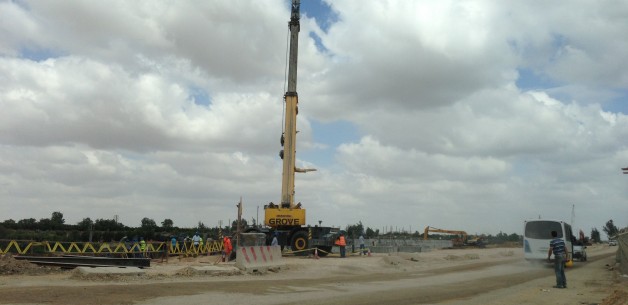In July, civil society organizations (CSOs) from around the world called on the Asian Infrastructure Investment Bank (AIIB), the world’s newest multilateral financial institution, to put social sustainability at the heart of its investments in the transport sector. The comments highlighted key gaps in AIIB’s proposed strategy for investments in the transport sector, which is likely to be finalized within the next few months.
The draft transport sector strategy commits to ensure that Bank-financed transport projects are financially viable and have solid economic returns, yet only to promote the environmental and social sustainability of projects. The strategy specifically mentions the importance of promoting “gender sensitivity” and “accessibility for the benefit of various segments of society” in transport sector projects, but only “where opportunities exist.” CSOs called on AIIB to recognize that such opportunities exist in every project, and to provide greater specificity on the measures that AIIB will take to fulfill these commitments. CSOs from Bangladesh and the Philippines recommended that AIIB specifically recognize the need for transport infrastructure and services to be accessible for people with disabilities. CSOs also encouraged AIIB to provide greater detail on the meaning of “gender sensitivity,” and to ensure that AIIB addresses the risk of violence against women and girls in the design, implementation, and operation of transport sector projects.
The transport sector strategy also emphasizes mobilizing private capital and supporting public-private partnerships (PPPs) in the transport sector. However, the strategy does not address longstanding CSO concerns about the risks of PPPs, including the potential for PPP agreements to restrict the State’s right to regulate in the public interest; to allocate risks in a manner that places a disproportionate financial burden on the public sector; and to exacerbate existing inequalities in the access of the poor and marginalized to infrastructure and other services.
In addition, civil society reiterated the need for additional clarity on the AIIB’s Environmental and Social Framework (ESF). AIIB still has not publicly released guidance for staff or clients on the implementation its environmental and social standards for projects. In the absence of greater clarity on the provisions of the ESF, particularly provisions that relate to “vulnerable and disadvantaged groups,” the impact of AIIB’s commitments remain uncertain.
The full text of civil society submissions on the draft transport sector strategy are included below.
BIC Preliminary Recommendations
BIC Transport Sector Cover Letter
Access Bangladesh Foundation Letter
Rivers Without Boundaries Coalition Comments

